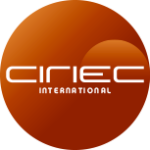Applying Sustainability Transition Research in Social Work
tackling Major Societal Challenge of Social Inclusion
A sustainable soial foundation for human life can only develop in an inherent interdependence with the overall ecological ceiling and regenerative economy.
ASTRA, a collaborative research project, paves the way for a radically new approach to tackle the major societal challenges faced in the pratice of social work. This is done by combining transdisciplinary sustainability transition research, policies and practices in social work, with a focus on the social inclusion of young people facing precariousness, people with a migration background and vulnerable local communities in Europe.
The ASTRA consortium is a unique European-wide research network bridging the research of Social Work and Sustainability, consisting of:
- 7 university-based forerunners in sustainability research in Social Work,
- 2 leading non-university organisations of transdisciplinary sustainability research (among which CIRIEC-Belgium),
- and 8 NGOs and social economy enterprises/federations.
The main objective of the training in ASTRA is to educate, through participatory research, a new generation of creative and open-minded young researchers of social work, who will be able to tackle the relevant major social challenges of societies by using the perspective of sustainability transition.
15 MSCA – Marie Curie Early Stage Researchers (ESR) for three-year positions will be hired.
Methodic Models for pratice-research social work
The potential of the following methodic models are investigated: nature-based well-being, environmental justice, circular and solidarity economy, sustainable food policies with vulnerable communities, ecosocial innovations and contributive justice.
ASTRA offers the ESR novel career perspectives in transdisciplinary research, cross-sectoral policy-making and new economic models at the local, national and European level.
Universities and Research Centers involved in the project:
- University of Jyväskylä, JYU, Finland
- University of Bielefeld , UNIBi, Germany
- The Free University of Bozen- Bolzano, UNIBZ, Italy
- University of Durham, DUR, UK
- Catholic University of Leuven, KU, Belgium
- ISCTE-University Institute of Lisbon, Portugal
- University of Ljubljana, UL, SLovenia
- CIRIEC Section belge, Belgium
- Natural resources Institute LUKE, Finland
CIRIEC-Belgium is involved in the 2 Research Positions (ESR12 + ESR13) and will host and second during 3 years the 2 PhD candidates who will work on :
- Developing assessment tools to measure sustainable impact of social inclusion programmes on young people facing precarious situations and people with a migration background – together with Fédération CAIPS (Concertation des Ateliers d’Insertion Professionnelle et Sociale, with Céline LAMBEAU) and Prof. Koen Hermans (KULeuven) => ESR12
- Enhancing democratic economic participation in vulnerable urban transdisciplinary contexts (with a spatial consideration of urban re-designing and an impact intention for local territorial development) – together with the University of Antwerpen (Prof. Nathalie VALLET) => ESR13
ASTRA Project website: https://www.astra-sw-network.eu/
ASTRA blog by Early-Stage Researcher:
- Yannis Perifanos: Integration and empowerment of people with intellectual and developmental disabilities: Exploring the Belgian ETA.
- Aila-Leena Matthies: “ASTRA has changed the course of my life”: International doctoral training and research project ASTRA creates pathways for social inclusion by means of sustainability transitions
- Athina Moroglou: A South Tyrolean secondment experience
More Astra blogs HERE
Further, CIRIEC-Belgium is head of the training package on Economic Sustainability.
Objective: provide new empirically proven and comparative European knowledge about the realistic and concrete applicability of new sustainable economic models beyond conventional business and SMEs.
More precisely:
- capability of Circular Economy to respond to precariousness of European youth;
- ecosocial innovations and solidarity economy in vulnerable local communities;
- gender and care in the social economy of European local communities;
- assessment tools to measure sustainable impact of social inclusion programmes;
- enhancing democratic economic participation in a transdisciplinary context of urban development in favour of vulnerable local communities.
More detail HERE
EU funded research project
The project leading to this application has received funding from the European Union’s Horizon 2020 research and innovation programme under the Marie Skłodowska-Curie grant agreement No 955518.


